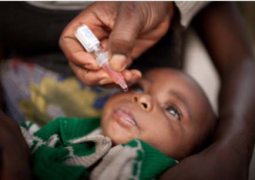- A Case For Attainment or Illusion?
As far back as the Economic Recovery Programme (ERP) and its sequel the Programme for Sustainable Development (PSD) in the late '80's and early '90's, the quest for food security at household level and food self-sufficiency at national level have been made the highest of priorities in this country. This ambition was strongly reflected in most, if not all, agricultural policy documents prepared by government and backed with hefty financial allocations from external sources (World Bank, FAO, IFAD, ADB etc.) and also from annual national budgets. Furthermore Vision 2020 was launched in the mid 1990's to attain the same goal.
Today, 20 years on from the PSD and virtually 10 years on from the launch of Vision 2020, the prospects of food security and food self-sufficiency still seem to be eluding us.
Rice, our national staple food, is hardly affordable at its present market price of D850 and is threatening to reach the D1,000 mark soon. The price of oil is going up too, as is the cost of flour. The recent rise in costs at the fuel pumps mean that transportation costs will soon follow. The question is: How are Gambians to survive? The majority of those lucky enough to have a job are low salary earners.
To avert an impending crisis, government should lower taxes and duties on imports, particularly basic necessities such as foodstuffs, to enable the masses to afford them. This is a short-term remedy.
In the medium term, government should endeavour to raise agricultural production and productivity. Of course apart from the timely and adequate availability of farming inputs such as good seeds, fertilizer and the rental of tractors and power-tillers, government should help to get rid of credit-buying from farmers. This is a disincentive to productivity and disheartening to farmers and their dependents. Not only should farmers be paid promptly, the price for their produce should be raised to be commensurate with their labour and other inputs and to take into account the current high cost of living.
Government needs to review its agricultural pricing policies. Government must also try to achieve higher levels of GDP as that would enable adequate salary increases for employees.
The recent increase of 20% in salaries represented, for the most part, an increase of just D150 - D200 per month in actual terms; therefore it is not enough to help people cope with the different increases in the various commodities. In fact, one could say that the 20% is already eaten up by the most recent price increases. We the Gambian people must also endevour to save ourselves from this food crisis. The public should encourage the formation of consumer organisations around the country so as to fight price increases at ground level. We must also begin to vary our diet away from rice and try to use other types of food when cooking. Last, but not least, all who have access to farmland should cultivate it.
"Deliberation is the work of many men. Action, of one alone."
Charles De Gaulle


